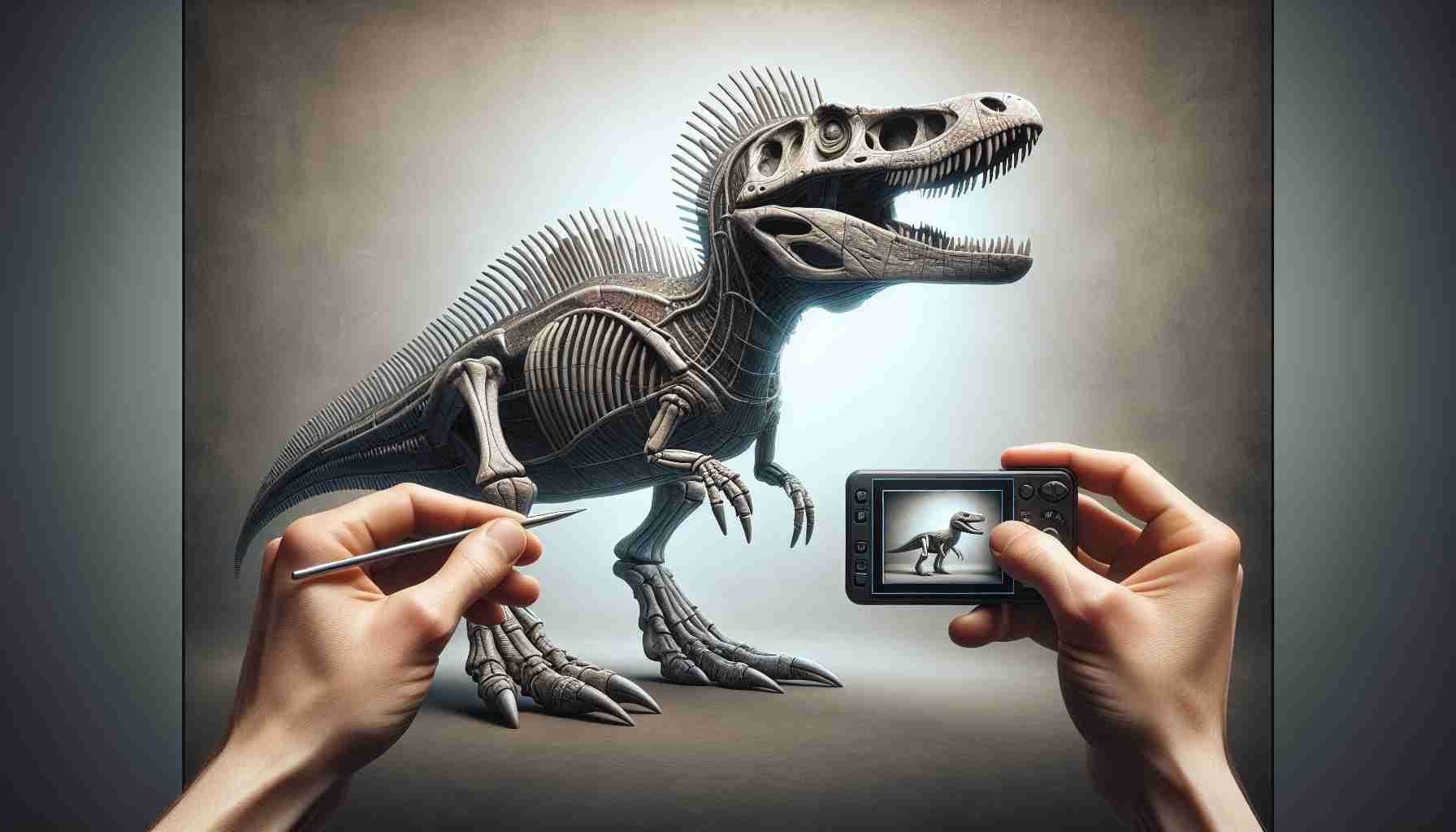AI’s Melody: The Future of Music Creation
In the evolving landscape of the music industry, a revolutionary change is underway. Canadian icon Drake is trailblazing into novel territories by blending his artistry with Artificial Intelligence (AI), hinting at a seismic shift in how music could be crafted soon.
The Convergence of Tech and Artistry
Teaming up with a leading tech company, Drake is set to utilize AI-based technology to revolutionize his music production. The AI-driven software is designed to delve into extensive databases of themes, beats, and lyrics, thus offering a fresh lens through which to experience music creation. This venture highlights a growing trend where musicians marry creativity with cutting-edge technology, potentially reshaping artistic boundaries.
A New Era for Human and AI Collaboration
Despite some traditionalists voicing apprehensions about technology impacting musical authenticity, the integration of AI presents a compelling prospect for artists to innovate. Drake’s initiative is not just about altering production techniques but also exploring a symbiotic relationship between human creativity and AI. This collaboration could unleash previously unconceived musical landscapes, allowing artists to experiment more freely.
The Broader Implications: An Industry Transformed
Beyond individual creativity, the embrace of AI signals a broader transformation within the music world. With potential developments like AI-enhanced tours and virtual concerts, music could evolve into a more immersive experience, heightening audience interaction on a global scale.
Embracing the Future
As AI continues to permeate the music scene, its role is likely to expand, offering artists unprecedented tools to enhance their craft. As leaders like Drake navigate these uncharted waters, the industry watches closely. Will AI be the key to unlocking new realms of innovation, or will it challenge the essence of musical creativity? The answers could redefine the soundscape of the future.
AI and Music: Unpacking the Innovative Fusion
The interplay between AI and music is quickly moving beyond the realm of experimentation, heralding a new epoch where creativity is boundless and innovation is indeed the rule rather than the exception. As luminaries like Drake spearhead this transformative journey, several intriguing aspects emerge, not previously explored in the mainstream discourse.
How AI is Changing Music Creation
One of the pivotal ways AI is reshaping the music industry is through its ability to parse colossal datasets, seamlessly generating new content. AI tools, through machine learning algorithms, can analyze thousands of musical compositions, recognizing patterns and creating unique combinations of rhythm and melody. This level of analysis can assist musicians in crafting songs that resonate more deeply with audiences by fine-tuning emotional and thematic undertones.
Pros and Cons of AI in Music
Pros:
– Efficiency: AI technology can significantly speed up the music composition process, allowing artists to produce more content in less time.
– Diversity: AI can propose novel combinations of sounds and genres, leading to innovative music styles.
– Personalization: With AI, music can be tailored to individual tastes on a large scale, creating a more personalized listening experience.
Cons:
– Creativity Concerns: Critics argue that an over-reliance on AI might stifle genuine creativity, reducing artistic value.
– Authenticity: There is ongoing debate about the authenticity of AI-generated music and its emotional depth compared to human-composed works.
AI Trends in Music
The rise of AI in music is not isolated; it is part of larger tech-driven trends influencing various industries. Major trends include the rise of virtual reality concerts, which use AI to enhance audience interaction, and AI-based music tutoring apps that personalize learning experiences for aspiring musicians. Moreover, AI is making strides in enhancing audio mastering, providing tools that deliver high-quality production at a fraction of traditional costs.
Security and Ethical Considerations
AI’s encroachment into creative industries does raise important security and ethical questions. Protecting artists’ intellectual property rights in an AI-dominated landscape is a primary concern. Enhanced security protocols and clear guidelines are necessary to prevent unauthorized use of AI-generated content.
The Sustainability of AI Music
As we advance, the sustainability of AI music production will also be under scrutiny. While AI can potentially reduce resource use by optimizing sound creation processes, the environmental impact of the computational power required remains an issue to be addressed.
Future Predictions
Looking ahead, the collaboration between musicians and AI will likely give birth to concerts featuring AI-generated holograms and music that adapts in real time based on listener feedback. This wouldn’t merely extend the diversity of musical genres but could foster a new societal view of music—a universal medium that transcends the boundaries of traditional creation.
The fusion of AI and music is more than a technical experiment; it is a pivotal shift in how music is conceived and enjoyed. As the world tunes into this evolving symphony, the answers rest in the ongoing harmonization between past musical tradition and future technological possibilities.


















